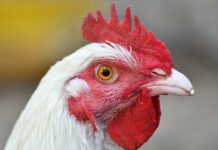Editor:
A Brazilian meatpacker, JBS, recently purchased the third largest U.S. meatpacker — Swift & Co. — making JBS the third largest U.S. meatpacker and the world’s largest meatpacker.
In March 2008, JBS announced its intentions to purchase the fourth and fifth largest U.S. meatpackers — National Beef Packing Co., and Smithfield Beef Group. This purchase would make JBS the largest meatpacker in the United States and would significantly reduce competition, particularly in areas of Kansas and Texas, where these packing plants compete for fed cattle.
JBS also intends to purchase the largest feedlot operation in the United States — Five Rivers Ranch Cattle Feeding, LLC, which is currently owned under a joint venture by Smithfield Beef Group.
Because Smithfield’s packing plants, which currently are located in Pennsylvania, Wisconsin, Michigan and Arizona, are outside the region where most cattle are fed and slaughtered, Five Rivers does not likely provide Smithfield with large volumes of captive supply cattle. Instead, Smithfield likely sells most of its Five River cattle to other packers. However, if JBS purchases Five Rivers and the other two packers, it will become vertically integrated and all of the 2 million cattle fed annually at Five Rivers would be captive supply cattle available to JBS.
We are deeply concerned the JBS plan to purchase two major packers and to vertically integrate the feeding sector will give JBS an unprecedented ability to manipulate and control cash cattle prices. This would directly impact U.S. fed cattle prices, which would lead to lower prices paid for all classes of cattle, including calves, bulls and replacements.
Experts have estimated that JBS could control one-third of all the steer and heifer slaughter in the United States.
The U.S. Department of Justice is investigating the potential effects of these particular mergers. On April 3, 2008, the justice department indicated that while these mergers would greatly concentrate the beef packing industry, concentration alone does not violate antitrust laws. The justice department, therefore, must find evidence the concentration would result in less competition or more market power, and it is going to need help from our industry to compile this evidence.
We must look at this issue from a long-term perspective. What would we do if JBS later attempted to purchase Tyson Foods or Cargill Meat Solutions, or both? If we look at what already has happened to purebred swine breeders when the U.S. hog industry became highly concentrated and vertically integrated, it is clear purebred cattle producers would be the first in our industry to suffer the consequences of further concentration and further integration.
We encourage individuals to write their U.S. representative and senators, the justice department and the state’s attorney general’s office and urge them to take steps to prevent the proposed JBS mergers on the grounds that they will reduce competition.
Our industry must immediately organize to stop these mergers. You can obtain a copy R-CALF USA’s white paper explaining why these mergers would harm our industry under the “Competition Issues” link at www.r-calfusa.com.
David Hutchins
West Mansfield, Ohio
(The letter was co-written with Tom Burke, Smithville, Mo.)










If jbs purchases these packing plants they are going to effect cattle prices. jbs is going to hurt small cattle farmers.Some farmers depend on on calves and bulls to keep their farm a float. I think the government should prevent this purchase.